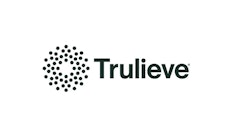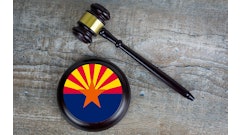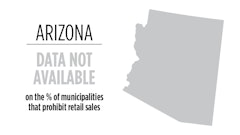
Is Arizona doing enough to promote social equity in its adult-use cannabis market?
According to plaintiffs in a recently dismissed lawsuit, the answer is no.
Proposition 207, the 2020 voter-approved initiative that legalized adult-use cannabis in Arizona, mandates that 26 of 169 total adult-use cannabis retail licenses be awarded to applicants impacted by prohibition, leaving leeway in the actual implementation of a social equity program.
The Arizona Department of Health Services (ADHS) has since announced that the 26 social equity dispensary licenses will be awarded to applicants who meet three of four qualifying criteria, which focus on household income, adverse impacts from the war on drugs and residency requirements.
In October, ADHS announced that applicants who have recently lived within 87 qualifying ZIP codes, which appear heavily focused on or near Native American reservations in the state, would meet the residency criteria for the licenses.
More than 1,500 applications were filed ahead of a December 2021 deadline to apply for the 26 social equity licenses.
A random selection process to issue the licenses is slated for spring 2022.
A lawsuit, filed in part by the Greater Phoenix Urban League, alleged that the state’s rules governing the social equity licenses are deficient, lacking provisions such as a prohibition against license transfers and a requirement that licensees’ expenditures and profits remain in their communities.
Maricopa County Superior Court Judge Randall Warner dismissed the lawsuit earlier this month, ruling that the regulations published by ADHS satisfy the provisions set forth by Prop. 207.
Now, Clark Wu, a business attorney and litigator for Arizona-based law firm Bianchi & Brandt, says it is unlikely that rule changes or further litigation will derail the licensing process, but it is possible that the state could issue new regulations to govern how social equity licenses operate moving forward.
Wu says the litigation challenging Arizona’s social equity licensing process was likely dismissed because the plaintiffs asked for more than the court could provide. Although Arizona’s social equity program may not align with the plaintiffs’ idea of the ideal program, the court ultimately determined that the state did not do anything unlawful or noncompliant under Prop. 207.
“The Smart & Safe Act in Arizona, which started the social equity program, gave our Department of Health Services very wide discretion in the type of program that they could come up with,” Wu says. “It gave the state, the department, wide discretion in terms of how to best structure the program in a way that will benefit Arizona, Arizona’s communities, and the social equity applicants. When the courts looked over these lawsuits, essentially, what the court ultimately determined was what the plaintiffs were asking was beyond the reaches and scope of the Smart & Safe Act.”
The plaintiffs in the case represented minority owners and operators, both those already operating in Arizona’s cannabis industry and those looking to secure a license.
“Essentially, all of these groups were saying that the state did not do enough, so they then asked the state to go back and actually restart rulemaking and to come up with a more protective program and a program that really ensures in the future that the licenses remain with these license holders,” Wu says.
If the state were to go back and redraft the program’s rules, however, Wu warns that there could be unintended consequences that actually harm the entrepreneurs that the social equity program is meant to help.
“There are a lot of individuals on the social equity side that are relying on these existing rules,” he says. “[They] put in the time, effort [and] monetary resources to submit these applications, and now they would be harmed if the application process is delayed or changed.”
A similar situation has played out in Illinois, where ongoing litigation has barred the state from issuing new adult-use cannabis dispensary and craft grow licenses to social equity applicants as the lawsuits make their way through the legal system.
RELATED: No End in Sight? Illinois Craft Grow Applicants Wait in Limbo as Litigation Drags On
“Under the current state program, there’s a set of strict criteria that individuals have to meet in order to be a social equity applicant, one of them being coming from, essentially, a low-income background,” Wu says. “The second part is living in disadvantaged areas that have been historically impacted by marijuana laws, and also to have some connection with a marijuana offense.
“So, you’re asking individuals who potentially have limited resources and are already disadvantaged in other areas to restart the [licensing] process after they’ve already spent over half a year at this point, if not longer, trying to get involved in this program. I think that’s something the state department will consider when deciding if they actually want to do anything about restructuring or potentially delaying the application process.”
The larger issue at play, Wu adds, is the overarching question of how best to structure state-run cannabis programs to promote social equity. Each state has taken a slightly different approach so far, which Wu says reflects the different circumstances that give rise to social equity programs in the first place.
“Social equity statutes and rules are all well-intended,” he says. “They’re prepared in a way … to potentially help increase diversity in the cannabis industry, and also to help individuals that might have historically been harmed or disenfranchised by the laws that are no longer in effect today. But the bigger question is, how do we get there? Everyone has different visions about what the perfect program and what the perfect route is. Unfortunately, as we’re seeing in other states, not every program has been successful, despite the best intentions. It doesn’t matter what route you take—there have been issues.”
In Arizona, Wu says any existing issues in the state’s social equity program are unlikely to be addressed through litigation or a reworked application process, which could ultimately delay licensing. Instead, he says anyone with concerns about the program should look to the future and how elements of other states’ social equity programs could be applied to the Grand Canyon State.
“The Department of Health Services does have the right to engage in further rulemaking about what the program could look like in the future,” he says. “There are a lot of other things we can do to potentially help with this program and also help the individuals that it’s intended to protect, such as setting up scholarship funds [or] job training and educational programs.”
For now, ADHS plans to issue the licenses this spring, although a hard deadline has yet to be set. Wu says the department must first conduct an administrative review on the applications, to ensure that all applicants submitted the required materials. Then, state officials will conduct a subsequent review to see which applicants actually qualify for a license, based on the information included in their applications.
“Currently, there’s still a significant number of applications that are under subsequent review because the state wants to do a thorough job,” Wu says. “To my knowledge, I don’t know if even by early to mid-March we’ll know for sure, but I think my best bet would be probably in late March to early April, we’ll have a better idea of when the license selection process is going to take place.”
Beyond the dismissed lawsuit’s impact on Arizona’s nascent adult-use cannabis market, Wu says the case could have a broader impact on other state programs, where regulators could take some of the plaintiffs’ arguments into consideration when addressing social equity concerns.
“Every state’s program is very unique,” he says. “Some states focus more on the front end, giving applicants support through the application process. Other states focus on what happens after you get a license and how these licenses are treated and granted. So, it really comes down to a state-by-state basis, but like everything else, I think when other states are developing their programs, they probably will take a look at and see Arizona’s program and see these lawsuits, and hopefully the analysis is, whatever comes out after the licensing, we do end up having a social equity program that truly aligns with what the act required and wanted and that’s good for the social equity applicants."
























